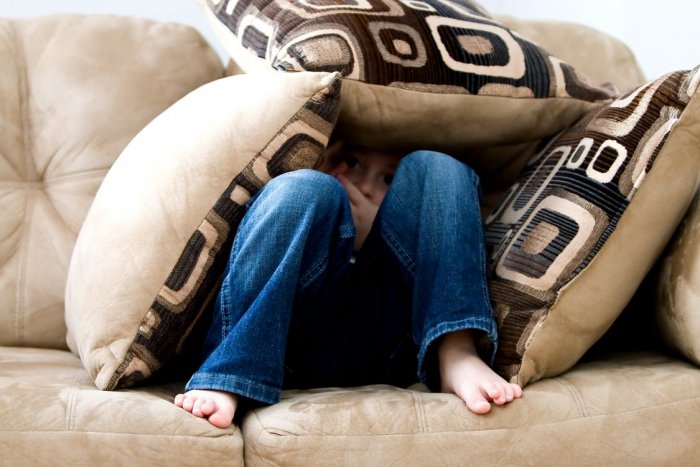OECD survey depicts rising discontent and fear

pexels
While incomes rise and economic prospects improve, Hungarians remain among the most discontented citizens covered in the OECDʼs latest survey of well-being. The survey also reveals that Hungarians fear for public safety more than anywhere else in Europe, some suggesting this may be a by-product of the governmentʼs strident anti-migrant propaganda.
While life has improved in most areas in Hungary compared to the years of crisis at the end of the previous decade, Hungarians rank as the second most dissatisfied with their lot among citizens of the 35 OECD countries covered in the latest "Howʼs Life?" survey by the Organisation for Economic Co-operation and Development (OECD).
The survey is part of the OECD Better Life Initiative, which aims to promote "Better Policies for Better Lives." According to the reportʼs foreword, it is "a statistical report released every two years that documents a wide range of well-being outcomes, and how they vary over time, between population groups, and across countries."
In general, according to a summary of the report by Hungarian online news site index.hu, although the 35 member states of the grouping of more developed countries have more or less recovered from the crisis, the economy as a whole is yet to completely regain its feet and people feel worse in many respects than prior to the crisis.
This is apparent, among other things, in a widespread feeling of decreased job security compared to ten years ago, declining trust in governments, and a sense among citizens that their influence on politics is waning, according to the OECD report.
Mixed picture in Hungary
According to most objective indicators used by the OECD, Hungary has regained pre-crisis levels, notes index. hu. Having plunged in the period 2006-2010, incomes have returned to the 2005 level, while long-term unemployment has declined significantly. Even so, it adds, household incomes remain among the lowest in the 35 countries of the OECD.
The survey notes that educational attainment is relatively high in Hungary, where some 83% of the adult population of working age have completed at least an upper secondary level education, compared to the 75% average in the OECD.
At the same time, when asked to put their "Life satisfaction" on a scale of 0 to 10, Hungarians rank above only Koreans in this regard. Index. hu notes that even the Greeks - with their struggles with high unemployment and low pay - have a better sense of well-being.
While citizens of OECD countries score 7.3 on average in this indicator, Hungary scores just 6.1. By contrast, neighboring Austria is second only to list-topping Canada in terms of life satisfaction.
In the category of "Perceived health status," Hungary ranks sixth from bottom, with only 56.3% of adults reporting good or very good health in 2015, which although a big improvement on the 45% recorded in 2005, is still far short of the OECD average of nearly 70%.
Public safety fears increase
Perhaps the most striking performance of Hungary among the indicators covered by the survey is that defined as "Feelings of safety when walking alone at night."
This indicator shows that only half of Hungarians - 50.7%, to be precise - feel safe on the streets after dark, the lowest proportion recorded in Europe and above only Mexico, which has the highest murder rate among OECD countries.
While this indicator has been relatively constant in the OECD countries as a whole, it has headed steadily downwards in Hungary over the past decade, in contrast to the Czech Republic and Slovakia, where the sense of public safety has steadily risen over the period.
Index.hu raises the question of how much the anti-migrant propaganda pursued by the Hungarian government in recent times - by which it might also allude to the frequent scaremongering slogans on billboards - may have influenced Hungariansʼ growing sense of insecurity on the streets.
In this regard, index.hu recalls an earlier survey in August of citizens in 38 countries by the U.S.-based Pew Research Center, which revealed that fears of migrants are greatest in Hungary, despite the fact that the country has among the lowest migrant or refugee populations in Europe.
"The influx of refugees, which was of particular concern in Europe in 2016, is seen as a major threat by a median of 39% across the 38 countries. It is the top threat in only one country, however: Hungary," notes the Pew report.
The rest of the world, meanwhile, for the most part regards the rise of Islamic State (ISIS) and climate change as the greatest threats to security, according to the Pew survey.
SUPPORT THE BUDAPEST BUSINESS JOURNAL
Producing journalism that is worthy of the name is a costly business. For 27 years, the publishers, editors and reporters of the Budapest Business Journal have striven to bring you business news that works, information that you can trust, that is factual, accurate and presented without fear or favor.
Newspaper organizations across the globe have struggled to find a business model that allows them to continue to excel, without compromising their ability to perform. Most recently, some have experimented with the idea of involving their most important stakeholders, their readers.
We would like to offer that same opportunity to our readers. We would like to invite you to help us deliver the quality business journalism you require. Hit our Support the BBJ button and you can choose the how much and how often you send us your contributions.











